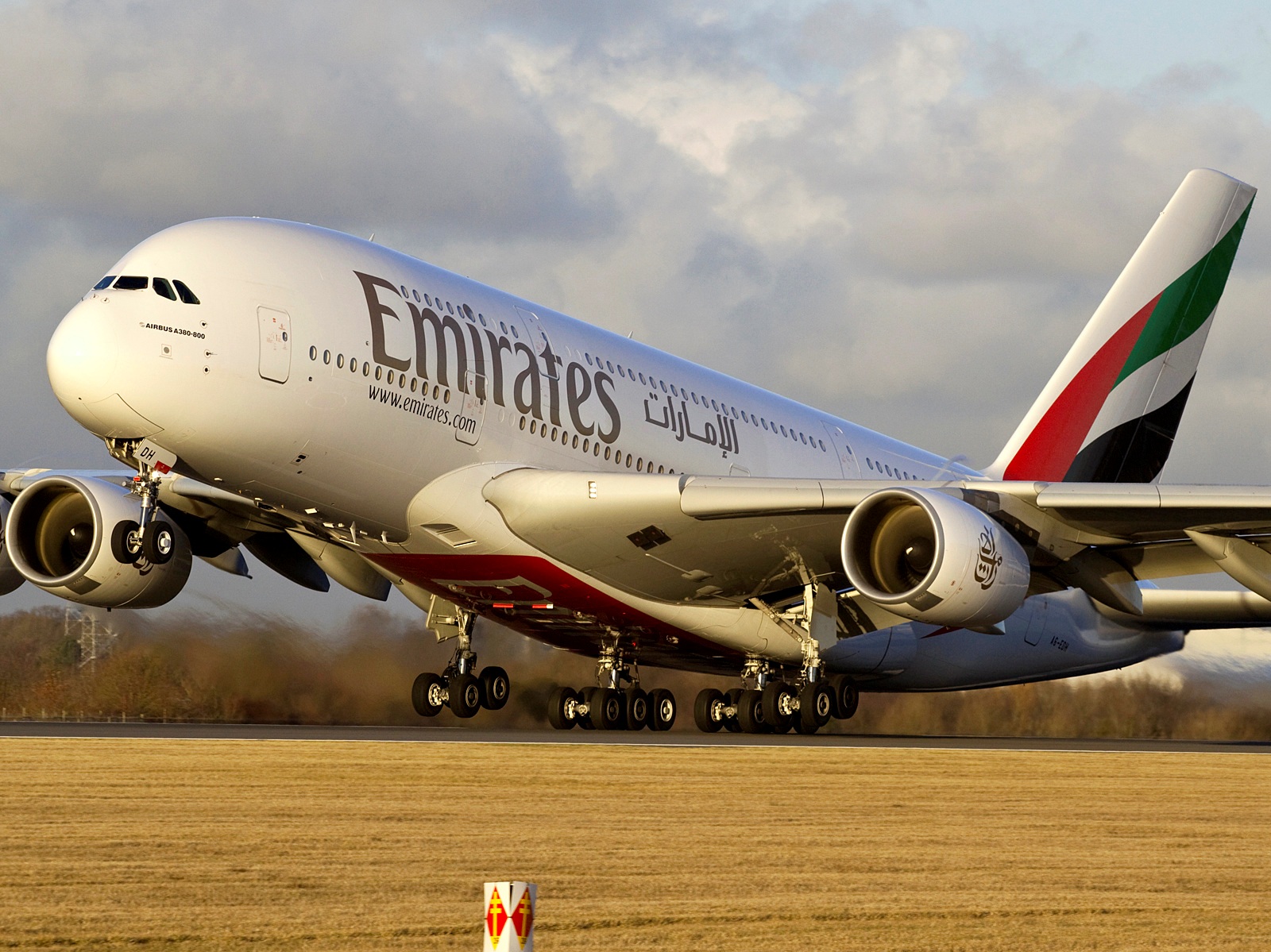Emirates Airlines went on the offensive over the Open Skies debate this morning with a dramatic press conference in Washington D.C. — and a whopping 388-page rebuttal to submitted to the U.S. government — saying the claims by the big three U.S. legacy airlines that Persian Gulf carriers receive government subsidies are “patently false.”
Emirates issued a line-by-line response to the 55-page white paper submitted to the Obama administration in January by American, Delta and United airlines. The paper alleged that Emirates, Etihad, and Qatar have accepted $42 billion in subsidies from their respective governments over a 10-year period. The legacy U.S. carriers believe the Middle East airlines have distorted the marketplace.
Emirates CEO Sir Tim Clark, speaking in the shadow of the U.S. government in Washington at the National Press Club, said the reality of the U.S. airlines is their desire for “protection from competition and the end of Open Skies.”
The white paper, he said, was “a series of demonstrably inaccurate assertions, outright distortions, and legal misinterpretations of the Open Skies agreement.”
Clark, like Etihad and Qatar before him, denied the airline accepts subsidies.
Clark was forthright and admittedly used what he called fairly strong language because he said the issue has exploded with rhetoric, including in the media.
Not only did Clark called the legacy carriers’ assertions “repugnant,” but at one point he said “They come to his debate with unclean hands. They have received government support (too).”
“The subsidy allegations put forward by the Big 3 are patently false. We have been profitable for 27 years straight, and unlike our accusers, we have never depended on government bail-outs or protection from competition,” he said. “In fact, we were told right from the start by the government of Dubai that Emirates has to deliver profits and stand on its own feet. We had to then, and we still have to now. Dubai has no oil reserves to speak of, and therefore it embarked on a well-documented strategy to diversify its economy with air transport as a key enabler.”
Clark also spoke to one of the main points of difference that Gulf airlines have emphasized — customer service. Noting that Delta is returning $7 billion to shareholders, Clark said: “But why couldn’t they have spent that money on improving the product? By making better seats? Gentlemen, this isn’t difficult, making the consumer enjoy the products.”
The full Emirates response can be found here, but even before Clark sat down for his press conference this morning the Partnership for Open & Fair Skies — the umbrella group representing the U.S. legacy airlines and dozens of prominent aviation unions and businesses — issued a statement.
“Emirates can submit as many pages as it wants, but it still won’t paper over what has been well-documented: Emirates has received billions in subsidies and unfair benefits from the treasury of the UAE. Our investigation shows that these massive subsidies have allowed Emirates, Etihad and Qatar airlines to expand far beyond what market forces could ever support, distorting international competition and tilting the playing field to its advantage. With American jobs at stake, the time for action is increasingly urgent. We respectfully ask that the U.S. government request consultations with Qatar and the UAE, and stand up against these unfair government subsidies that violate our Open Skies agreement.”
Clark has met with U.S. government officials. He said he has not been asked to freeze any new routes while discussions take place, and said he didn’t know when the administration would render a decision on whether to re-open consultations on the Open Skies agreements. He suggested that in July and August the talks might heat up.
Steele Luxury Travel
www.SteeleTravel.com

